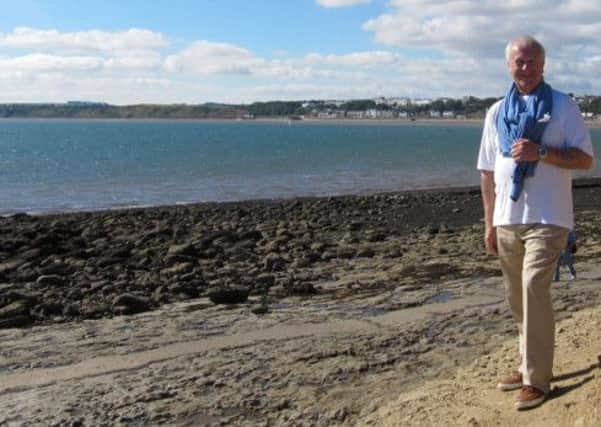Why Derek’s feeling young again


DEREK Gledhall is 62, but he says he feels like a 19-year-old.
But that was not always the case.
The grandfather from Doncaster suffered from depression, with symptoms that depleted and baffled him and his family.
Advertisement
Hide AdAdvertisement
Hide Ad“I lost my zest for life, my sex drive plummeted and I had very low self-esteem. I also became very emotional and tearful at the slightest thing.
“My wife, Christine, didn’t know what was what wrong me and neither did I,” said Derek, a retired area manager for a brewery.
But after reading an article in a Sunday newspaper on Andropause, also known as Testosterone Deficiency Syndrome, things began to make sense for Derek, who is also a type 2 diabetic.
“It was three or four years ago when I read a piece describing the very symptoms that I was experiencing. I decided to go and discuss things with my GP. He was very understanding and suggested a blood test,” explains Derek.
Advertisement
Hide AdAdvertisement
Hide AdThe results indicated that Derek had a low testosterone level, not uncommon among type 2 diabetics, so his GP referred him to Doncaster based Andropause specialist Dr Douglas Savage, who prescribed him with testosterone replacement therapy gel once a day.
“I have to admit that the effect wasn’t immediate but after a few months I began to notice a difference. I started to get my energy and love of life back. My over-emotional and dramatic episodes stopped and my sex drive returned,” said Derek.
“Myself and Christine have been married for 42 years and I can tell you we are very happy with the treatments I have been given.
“I have lost four stone in weight and thanks to the TRT, I feel like a young man again which, at 62, isn’t bad.
Advertisement
Hide AdAdvertisement
Hide Ad“If it’s good enough for Robbie Williams it is good enough for me.
“I would encourage all men who experience the kind of symptoms I did, to see their doctor as soon as possible and get their life back.”
Dr Savage says testosterone deficiency is common in men over 50, although he is seeing more younger men with the condition, which is often referred to as the male menopause or Andropause.
“A lot of it is down to lifestyle,” explains Dr Savage, a GP with a special interest in sexual health.
Advertisement
Hide AdAdvertisement
Hide Ad“It occurs more often in middle aged overweight men who are also at risk of developing or have a family history of Type 2 diabetes.
“But we are seeing men in their 30s and 40s due to sedentary lifestyles. We really need to see these people quickly.”
And Dr Savage is urging GPs to become more aware of the symptoms of testosterone deficiency.
“There can be a lack of sex drive or problems with erections, but the most common symptoms among all the men is an over-whelming tiredness. They all complain they have lost their get up and go.
Advertisement
Hide AdAdvertisement
Hide Ad“It is also their partners who are the ones to complain rather than the men themselves. We can treat them so easily with TRT that the wives and partners are so grateful that they have their husbands back.”
Dr Savage is calling on doctors to take a broader view of the testosterone level when seeing patients.
“A lot of people who go to the GP and ask for a test and have a level of 10 will be told it is not testosterone deficiency because the traditional scale is under 8. But we are pushing to get GPs to refer people who have between 8 and 12 and the relevant symptoms.”
Quite often men are being diagnosed with stress or depression, adds Dr Savage, and wrongly prescribed antidepressants which can exacerbate the situation.
Advertisement
Hide AdAdvertisement
Hide AdDr Savage, who runs the Leger Clinic in Doncaster, treats most patients with the condition on the NHS locally.
“There are people who are sceptical,” he admits. “No one has the money to carry out very large-scale studies but my experience and those of colleagues in other countries is that a lot of men are suffering from testosterone deficiency which can be easily and quickly treated.”
He added that some people were wary of the treatment as they associate use of male hormones with abuse.
“We are only replacing what is missing and in the long term it will save money if it reduces type 2 diabetes.”
The ‘Male Menopause’
Advertisement
Hide AdAdvertisement
Hide AdNew research, commissioned by the men’s health charity, the Andropause Society, showed that just six per cent of men in Yorkshire and Humberside (amongst the lowest in the UK) are aware of their hormonal health. And only eight per cent of GPs would suspect testosterone deficiency syndrome if a patient complained of the key symptoms. Testosterone deficiency syndrome is also termed hypogonadism, male menopause or andropause.
www.andropausesociety.org